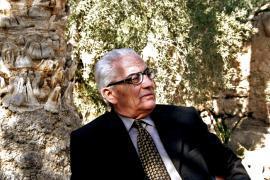
Khaled al Asaad
Some brave men performed deeds able to leave their mark on our imagination and to change our viewpoint on the world’s affairs, as suggested by Pierre Hadot, the great French scholar of ancient philosophy.
Those deeds are in fact the kind of gestures that, although not always able to change the world and often doomed to defeat, make us feel like acting for the Good of humanity and give us the strength to change ourselves.
Let us think of the naivete of Armin Wegner, who in 1933 wrote a letter to Hitler to try and convince him to stop the persecution of Jews; of the spirit of sacrifice of Jan Palach, who set himself afire in Saint Wenceslas Square to persuade the people from Prague to resist Soviet totalitarianism: of the madness of the still unknown young man who tried alone to halt the advance of the tanks in Tiananman Square, when the Chinese government decided to put an end to the student’s dreams; of the suicide of President Salvador Allende, who in the face of Pinochet’s coup did not want to yield the power in the Moneda palace and preferred to die under the shellings, for the sake of defending democracy.
These men who dared acting in the name of their conscience seemingly show the impotence of individuals in the face of dictatorship and the most gruesome crimes, but then over time they leave such significant marks, driving their transformation from naive Quixotes into true winners.
The reason for this turnpoint is very easy to understand. Despite their defeat, in the contingent situation, they in fact become moral examples for us, teaching us new outlooks for our lives.
Khaled el Asaad, the archaeologist of Palmyra slaughtered by Isis, is one of them.
Of course, as he covered his post he was certainly no critic Assad’s bloody regime. We do not know whether he ever uttered a word to report about the prisons built near his archaeological site, where the Syrian dictator had hundreds intellectuals and regime opponents tortured. And yet we know that he loved Palmyra for being a cultural symbol of human plurality at the time of the roman empire, where the most important trade streams from Rome crossed Persia and the Mesopotamic region and men and faiths melted, without any culture to prevail on the others. When he decided to remain in Palmyra in the face of the arrival of the IS militiamen, he would have all good chances to go back to Damascus and save his own life.
Why did he not flee, despite the pressing calls of his friends to do so? Maybe for that “senseless goodness” that prompts the best people to trust humanity even in the direst straights, as Armin Wegner wrote in some essays, to explain the reasons for his letter to Hitler. In fact, one had to be very naive to hope in the possibility to convince the new conquerors to spare the archaeological site or imagine to hide some precious relics from the sight of those criminals.
Nonetheless that naiveté has made history, and will change us all.
By deciding to assume before the world the role of the last keeper of Palmyra, he unveiled the hypocrysy of the international community that did nothing to save the archaeological site. Some targeted shelling in the desert could perhaps had achieved some results in preventing the arrival of the fundamentalists, but this did not happen because of political calculation, but rather due to the indifferent of a large part of the world (Arab, European and American countries) about the archaelogical heritage testifying the irreplaceable value of the great conquests of the past and give sense to our future.
Today, following his martyrdom, the United Nations’ agenda eventually has on top the proposal to set up and train a special unit of blue helmets to defend the archeaological sites, but this will not be enough unless we all feel we are the keepers of the past vestiges.
The picture of Khaled in front of the remains of Palmyra gas left an indelible footprint: it has taught us to carefully preserve and love the humanity’s heritage. Every time we are going to visit a monuments of the ancient civilizations we will have a different look.
Thank you, Khaled






